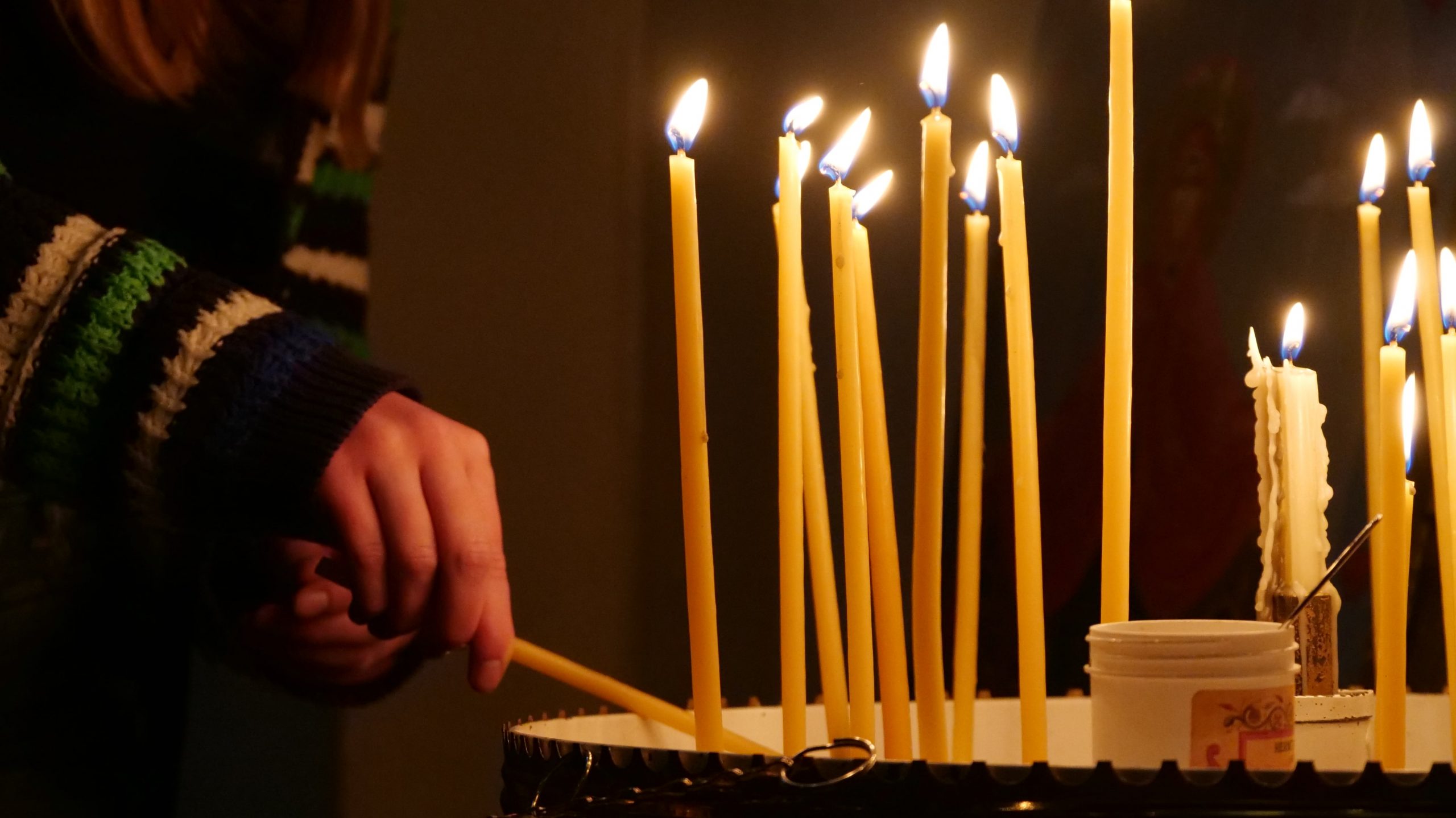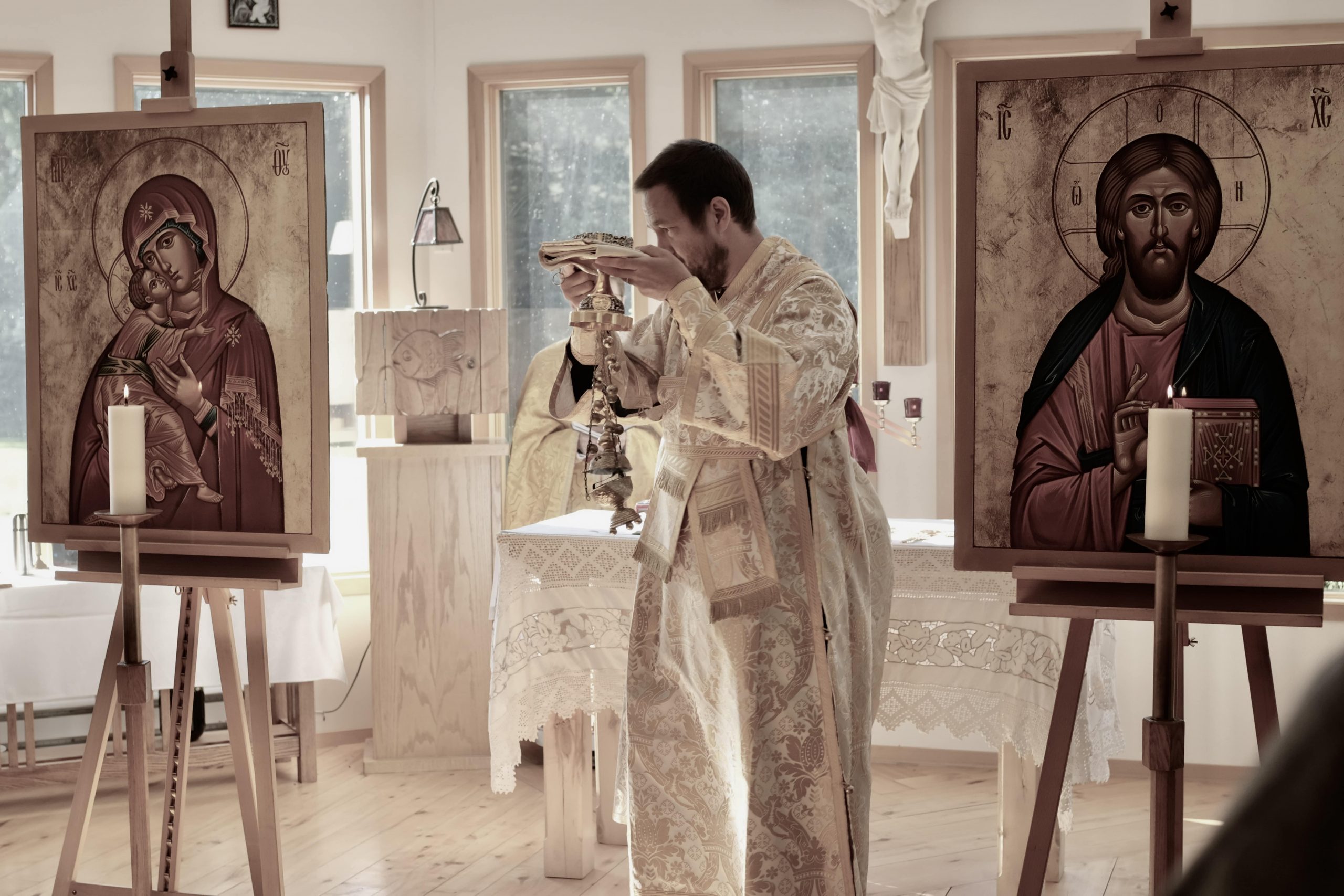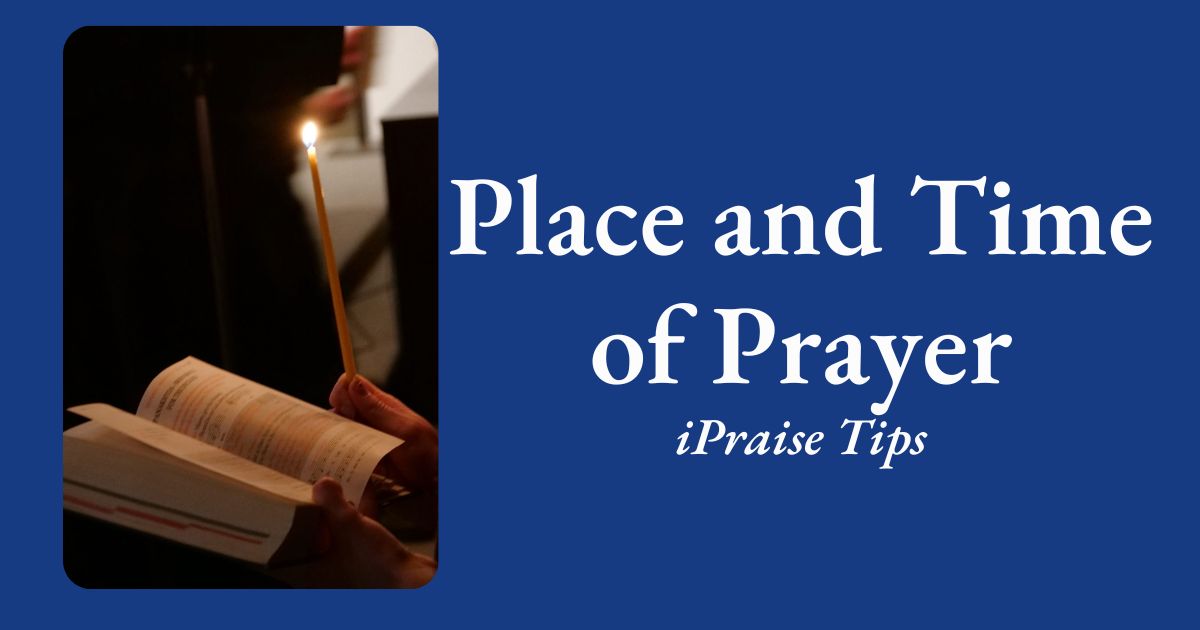1. Entering into Solitude for Prayer
In the Sermon on the Mount, Jesus taught us to pray privately and in seclusion, urging us to go into our room and close the door. The spiritual Fathers often explained this teaching as an encouragement to focus inwardly. It means directing our attention to the depths of our being. Saint Basil the Great emphasized the importance of being attentive to ourselves. This reminder is echoed in the liturgical phrase “Let us be attentive!” which prompts us to increase our awareness of our inner experiences.

2. How Often Should We Pray?
The Church guides us in our prayer journey and encourages us to follow its rich tradition of prayer. Through this tradition, we learn that it’s important to set aside specific times to communicate with God. At the very least, we should pray in the morning and evening. Prayerbooks contain appropriate prayers for these times, as well as for various situations we may encounter throughout the day. Prayer is central to our way of life, and as we pray more frequently, it becomes integrated into our daily activities. Prayer and work go hand in hand in the Christian life, with both aspects supporting and influencing each other. When we have a deep connection with God through prayer, our lives are transformed into a joyful experience that leads to our own sanctification and positively impacts the world around us.
3. Keeping Prayerful Vigil
Jesus urged His apostles to stay alert and pray, so they wouldn’t be overcome by trials (Mt 26:41; Mk 14:38). In the parable of the Ten Virgins, He also emphasized the need to stay awake because we don’t know when the time will come (Mt 25:13). The spiritual Fathers used the metaphor of sleep to describe the state of a sinful person who is spiritually unaware and deceived. Sin causes a person to become lost in self-deception and apathy. If this state of spiritual sleep persists, it leads to spiritual death, where one becomes completely disconnected from goodness and lacks the will to do what is right.
4. The Mutual Link of Prayer and Fasting
In the Gospels, Jesus teaches that prayer and fasting go hand in hand. They are both important for overcoming the influence of evil and being freed from sin. The Holy Fathers emphasized that fasting and prayer are inseparable. By fasting, we control our physical desires, allowing our inner self to grow through prayer. When prayer is disconnected from fasting, our inner self lacks the optimal conditions to develop and flourish.
5. Prayer before Icons
Icons help us in prayer by guiding our spiritual growth. They enable us to move from having faith in the mysterious nature of God to experiencing a deeper contemplation of Him. The Seventh Ecumenical Council teaches that God is revealed to us through His Son, who is the Word and Image of God. Different ways of knowing God are equally important and valid. When we pray before icons, our eyes become the main way we communicate with God, rather than using words from our lips. Through our eyes, we gaze at the image and contemplate the Person depicted. Similar to vocal prayer, praying before icons is a gradual process, like climbing the rungs of a ladder, as we progress in our spiritual journey.


